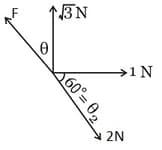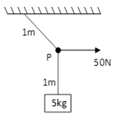Equilibrium
Equilibrium: Overview
This topic covers concepts, such as, Equilibrium of Forces & Resultant of the Forces at a Point etc.
Important Questions on Equilibrium
Two forces are acting on an object, a force and a force. What is the minimum net force can act on the object?
If and forces are acting perpendicular to an object. Then determine the resultant force.
Two forces of equal magnitude i.e. are acting in opposite direction at a point. The resultant force on the point:
Two forces are acting in a mutually perpendicular direction at a point. If the magnitude of both forces is equal i.e. . Find the resultant force acting at that point.
Determine the resultant force when three forces such as , and are acting on an object simultaneously and force is opposite to the other two forces.
A block of mass is suspended by a massless rope of length from the ceiling. A force of is applied in the horizontal direction at the midpoint of the rope, as shown in the figure. The angle made by the rope with the vertical in equilibrium is: (Take)
There are four force acting at a point produced by strings as shown in figure, which is at rest. The force and are
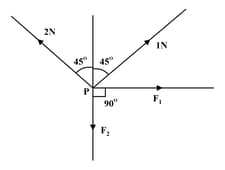
A cubical block of mass 5kg and side 10cm is pressed against a rough wall with a force F passing through the centre of cube inside a swimming pool as shown in the figure. Then: 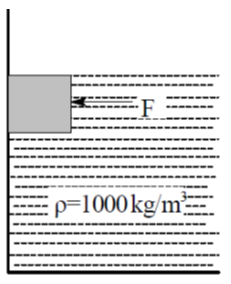
Find the value of and in the arrangement shown in figure. The system is in equilibrium
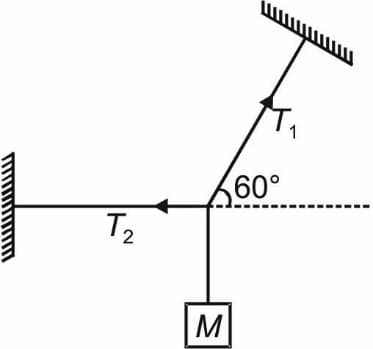
A body of mass is suspended by two strings making angle and with the horizontal as shown in figure. Tensions in the two strings are
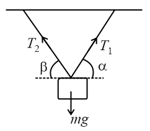
Four concurrent coplanar forces in Newton are acting at a point and keep it in equilibrium figure. Then values of and are angle made by with the plane is
